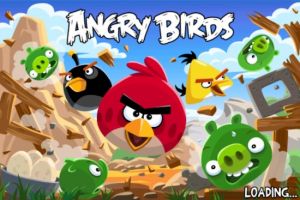Problems in Game Land: IAP Fees Get Gamers Up In Arms

08. Plants Vs. Zombies 2 - PopCap
The original title that established this well-loved series was a Pay-Once-Play-Often game that introduced an unlikely hero - plants - and a well-known enemy - zombies.
A tremendous number of man hours (and woman hours) was spent dealing with the zombie hordes, so the launch of the direct sequel to the title, Plants Vs. Zombies 2, could only be a good thing, right? Well, not so much really.
Mobile gamers on the iOS devices learned that PVZ2 was to be a Free-to-Download, Free-to-Play game, which was alright with them... Hey! Totally win-win! Or was it?
Whenever a game is given away on the mobile gaming platforms it is pretty much understood that it will include some sort of in-app purchase scheme in order to create a revenue stream, as otherwise the game studio and its publishers cannot afford to make good quality games.Generally in-app purchases are crafted to be voluntary - so that players who do not choose to partake in them are not punished for the choice, while those that do opt in reap certain benefits for their spending.
When PvZ2 first arrived players thought it was the perfect marriage of Free-to-Play and addictive gaming - that is until they discovered that the wizards behind the game had opted to create what are known as Difficulty Spikes every so many levels.

These Difficulty Spikes were such that, for the vast majority of players, the only way past them was to spend money on in-app purchases to buy their way past spikes...
To get past without spending basically required hours and hours of grinding away and not getting discouraged or upset by the inevitable failures.
While that alone explains simple irritation, it was the structure of the advancement scheme that finally spurred genuine anger. Basically advancing to the next level requires the player to obtain a set number of stars - but the stars only become available AFTER the player has traversed through the area.
According to detractors this was intentionally created to encourage players to spend money on in-app purchases so that they could avoid backtracking, which was perceived as being a step backwards in play.
While that unfortunate design issue generates significant anger, that is nothing compared to the reaction of Chinese gamers, whose version of the game has been the subject of much anger and, ultimately, has led to the decision to boycott both the studio PopCap Games and the publisher EA.
Talk about a billion angry Chinese right?

I lose each time i tried level 10!i want infinite gold!please?